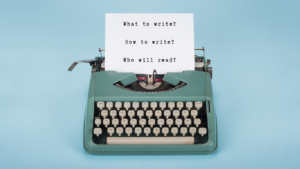
AI chatbots like ChatGPT and Bard are exploding in popularity, raising concerns about their potential to rival human intelligence. With the world still recovering from the pandemic, this AI boom is both awe-inspiring and unsettling.
AI chatbots are revolutionizing how we interact with technology, understanding natural language and learning from our inputs. This rapidly evolving tech is still young, but constantly improving!
Table of Contents
How is AI Chatbots different from Search Engines?
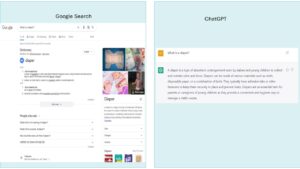
This is different from search engines in many ways. Search engines like Google and Microsoft Bing work as libraries where books and contents are indexed and kept in record. Whenever a query is entered, they will run some algorithm and produce a search engine result page where various sources related to that query will be listed. You can go through those links/sources and use your critical thinking to find the possible answer.
But these AI-powered chatbots work differently. They use natural language processing, machine learning, and web search. It analyzes your input and tries to understand your intent and the context of the query. Then it performs a deep search on the internet to gather relevant information and applies machine learning to construct a response that will be informative and engaging for you. It won’t stop there. It will ask for your feedback and try to improve itself every time.
What can AI chatbots do?
Here are the glimpses of what AI chatbots like GPT4, BingAI, and Google Bard can do for the automation of tedious and repetitive jobs for humans.
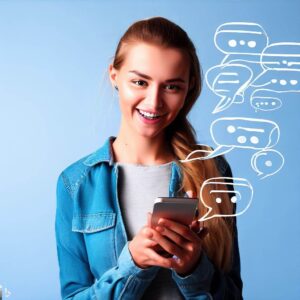
- Content generation: They can be deployed to write a script for a movie or a series on Netflix. It is projected that by 2035, 90% of movies script will be written by these chatbots.
- Education: They can help summarize long articles or documents which can save time and improve the productivity of students and teachers. They can also be used to prepare personalized feedback for students which can help them improve their learning outcomes.
- Health Services: It can create a condensed output of research papers, new discoveries, and medicinal developments for doctors. Hospitals can deploy them to access the medical history of patients and help them with personalized recommendations.
- Sports: Players and coaches can identify trends from matches and training seasons. This will help them save time and practice more. They can analyze various data points from previous records and plan strategies against other teams as well as individual players.
- Industries and companies: Companies, especially in service industries, can use it to improve customer interactions and provide more personalized experiences. It can help a brand analyze customer data, market trends, and industry best practices and suggest campaign strategies tailored to achieve goals. It can also track the campaign’s performance per the defined KPIs.
- Government: These technologies can be successfully applied for various social welfare schemes and infrastructural planning by governments across the planet. They can use it for rural and urban development planning, establishing helplines for emergency responses, and much more.
Technology is still young and learning fast. The coming years will define how various industries will adapt to this whole new world of opportunities.
Are they trustworthy?
At this stage, you cannot blindly trust the information and suggestions it is making. Because it is designed in a way where it reads the intent and generates the response which you may want to hear or already expect. It means, sometimes it may drop the critical points that a human brain should have considered. For example, if you ask it a sensitive question like ‘Is Russia a true democracy?’, it will get away by giving a politically balanced answer. However, you should put your brain into critical thinking mode and do your own research to find out what exactly is the situation there. Then only you will be able to develop your own perspective. Hence use it as an assistant but don’t sacrifice your critical thinking and judgment.
Will it replace humans in the workplace?
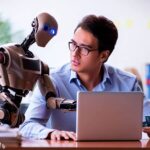
Remember, when Uber was launched, there were huge resistance and demonstrations by taxi and labor unions against it. There were claims that it will snatch away bread from thousands of taxi drivers. They still face such resistance whenever they enter a new market. It was a major disruption for the cab service industry. But after more than a decade, Uber ended up giving more jobs to millions of cab drivers across the world. It went on to become one of the most valued start-up ventures. It has really made life easy for commuters and simplified the transaction process.
AI chatbots GPT4 and Google’s Bard will certainly speed up automation at workplaces, save costs and increase output. There will be a major disruption in all industries. But businesses will soon realize that the technology is designed to assist and enhance human performance, not to replace them. These chatbots can help companies with tasks that are repetitive, tedious, or require a lot of information processing, but they cannot replace human intuition, creativity, or judgment. Hopefully, there will be a new wave of fresh jobs. Professionals should acquire advanced skills and become more employable, to be benefited from the immense opportunities this technology may create in the future.

How will AI and chatbots impact the marginalized and poor?
It’s a complex question to answer at the onset. For some, it will increase the digital gap between rich & poor, developed & under-developed countries. Those with better infrastructure and early access to these technologies will move ahead faster. Others may argue that it will decrease inequality by simplifying technology and making information more accessible. A lot will depend on how they are designed, deployed, and regulated. These AI-powered chatbots can be used for good or bad, depending on their creators and users.
Are AI Chatbots safe for kids?
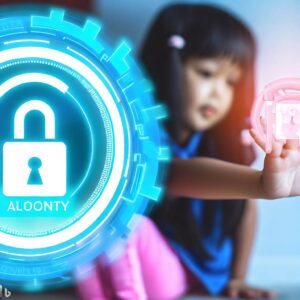
These chatbots are not intended for children under 18 years of age. Uncontrolled exposure may not be suitable for young ones. This kind of chatbot may provide inaccurate, inappropriate, or harmful responses that could confuse or upset a child. The chatbots may also collect or use personal data from them without proper consent or protection. Therefore, a child should use these chatbots only with the permission and guidance of a parent or guardian.
This should be the point where governments and regulatory bodies should step in. Introducing chatbots to children through education systems and in general could be an effective way to ensure that children are using them in a safe and appropriate manner. It could also provide opportunities for children to learn about the capabilities and limitations of these technologies, and how to use them responsibly. The new generation can grow alongside self-learning chatbots, which could lead to the emergence of a more intelligent human race in the years to come.
Conclusion
There is confusion among people about the capabilities of AI chatbots GPT, Bing, and Google Bard. They are still relatively new, and people are not yet familiar with them. There is a lot of misinformation and hype surrounding these tools, which can make it difficult to separate fact from fiction.
There is no need to ignore these technologies. People should approach them with a critical eye and consider both the potential benefits and drawbacks before making any conclusion about them.
Finally, Governments have a key role to play in ensuring that Artificial Intelligence and other advance technologies for the masses are being used ethically and responsibly. By regulating these technologies, educating the public, and collaborating with private companies, governments can ensure that these technologies are being used for the benefit of society.

About the Blog Writer
I am Dipak Kumar. I am an entrepreneur and blogger. In my long professional journey, I have worked with various organizations at different levels as a marketer, retailer, and merchandiser. Throughout this journey, I have worked along the consumer funnel. I have witnessed customers’ ever-changing buying behaviours, from brick-and-mortar stores to organized retail to E-Commerce.
I am writing this blog to share my knowledge and understanding of trending news, events, and subjects from Marketing, Retail, E-Commerce, Edtech, Travel, and Start-Ups. It’s not a nine-to-five job for me. It is a whole day and night job requiring in-depth research and collaboration to put things together and bring a new perspective for your consideration. I love doing this and hope you also like it and share it with your contact and online communities.


